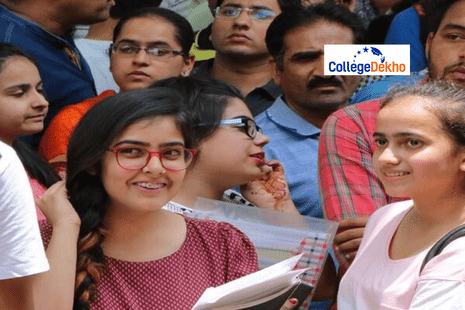KCET Electromagnetic Induction and Alternating Currents Weightage 2025 holds 6 to 8 % of the Physics Section. Candidates can check the important topics from Electromagnetic Induction and Alternating Currents in this article.

KCET Electromagnetic Induction and Alternating Currents Weightage 2025 - KCET Electromagnetic Induction and Alternating Currents is one of the chapters which holds approximately 6-8 % of the weightage of the Physics section. Candidates can expect 4 to 6 questions from this topic, which is equivalent to 4 to 6 marks. To score the same, it is always suggested to emphasize solving conceptual questions, and numerical problems, as well as theory-based questions.
According to the KCET syllabus 2025 , some of the important subtopics from KCET Electromagnetic Induction and Alternating Currents topics are Lenz’s Law, Eddy currents, Impedance and reactance and Resonance in AC circuits etc. In this article, we have discussed the KCET 2025 Electromagnetic Induction and Alternating Currents Weightage along with the important topics and some sample questions related to Electromagnetic Induction and Alternating Currents.
Quick Links:
Expected KCET Electromagnetic Induction and Alternating Currents Weightage 2025
In the KCET 2025 Physics section, the portion of Electromagnetic Induction and Alternating Currents generally make up a small but significant portion of the KCET 2025 exam. Based upon the KCET previous years' question patterns, the total number of questions from these topics generally falls within the following range:
- Electromagnetic Induction: 3–4% of the KCET Physics paper.
- Alternating Currents: 3–4% of the KCET Physics paper.
The approximate number of questions in the Electromagnetic Induction and Alternating Currents section is 2 to 3. In total, 4–6 questions can be expected from both Electromagnetic Induction and Alternating Currents together in the KCET Physics section.
The Electromagnetic Induction and Alternating Currents section represents about 6–8% of the overall Physics section, which includes 60 questions. These topics generally involve conceptual questions, theory-based questions, as well as numerical problems.
Important Topics of KCET 2025 Electromagnetic Induction and Alternating Currents
Some of the important chapters of KCET 2025 Electromagnetic Induction and Alternating Currents have been listed below.
Electromagnetic Induction | Alternating Currents |
|---|---|
Faraday’s Law of Induction | AC circuits, resistance, inductance, and capacitance |
Lenz’s Law | Impedance and reactance |
Induced EMF and current | Phasor diagrams |
Self and mutual induction | Power in AC circuits, power factor |
Eddy currents | Resonance in AC circuits |
- | Transformers |
KCET Electromagnetic Induction and Alternating Currents Questions
-
A conducting loop is placed in a uniform magnetic field. If the magnetic field is suddenly increased, the direction of the induced current in the loop will:
- (A) Be clockwise.
- (B) Be anti-clockwise.
- (C) Depends on the direction of the magnetic field.
-
(D) No current will be induced.
Answer: (C) Depends on the direction of the magnetic field.
-
Two coils are placed close to each other. The mutual inductance of the pair of coils depends on:
- (A) The rate of change of current in the primary coil.
- (B) The number of turns in both coils.
- (C) The relative position and orientation of the coils.
-
(D) All of the above.
Answer: (D) All of the above.
-
A coil of inductance 5 H5 \, \text{H}5H carries a current which is changing at the rate of 2 A/s2 \, \text{A/s}2A/s. What is the induced EMF in the coil?
- (A) 2.5 V
- (B) 5 V
- (C) 10 V
-
(D) 20 V
Answer: (C) 10 V
4. A transformer has 500 turns in the primary coil and 50 turns in the secondary coil. If the primary voltage is 220 V, what will be the secondary voltage?
- (A) 22 V
- (B) 44 V
- (C) 11 V
-
(D) 110 V
Answer: (A) 22 V
5. In a series LCR circuit, resonance occurs when:
- (A) The inductive reactance is equal to the capacitive reactance.
- (B) The total impedance is infinite.
- (C) The power factor is zero.
-
(D) The current is minimum.
Answer: (A) The inductive reactance is equal to the capacitive reactance.
6. In an AC circuit, the current leads the voltage by 60∘60^\circ60∘. What is the power factor of the circuit?
- (A) 0.5
- (B) 0.707
- (C) 0.866
-
(D) 1
Answer: (A) 0.5
Related Articles:
If you are looking to secure admission into the top private engineering colleges in India 2025 , you can just fill out the Common Application Form on our website. It is a single application form for getting admission into various universities. For more articles and updates on KCET Electromagnetic Induction and Alternating Currents Weightage 2025, stay tuned with CollegeDekho.
















Similar Articles
KCET Dual Nature of Matter and Radiation Weightage 2025
KCET Optics Weightage 2025
KCET Electromagnetic Waves Weightage 2025
KCET Electromagnetic Waves Topics 2025
KCET Electromagnetic Induction and Alternating Currents Topics 2025
KCET Magnetism and Matter Weightage 2025